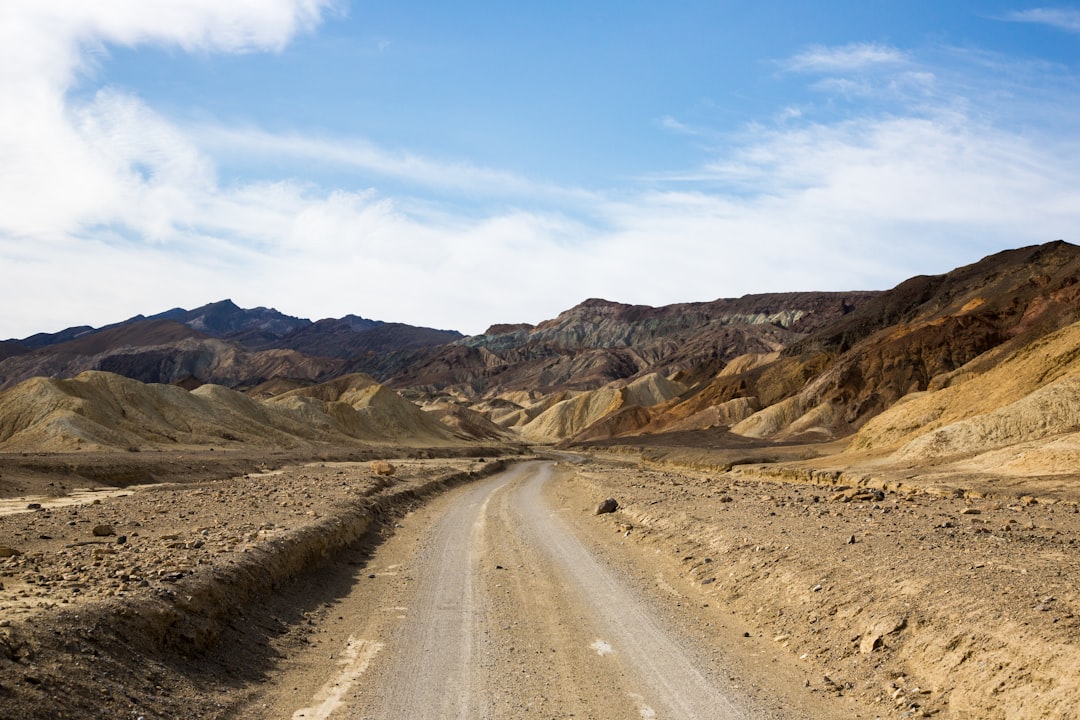He died in Death Valley. She didn't. This is her story.
Trapped alone in a Death Valley canyon with a broken ankle, few supplies, and little hope. This is Emily Henkel's story of survival.
Last April, Alexander Lofgren and Emily Henkel were driving through Death Valley when they hit a rock. Two tires were shredded. They were stranded.

Things were about to get worse.
They decided to hike a dangerous path to find help the next morning. Lofgren fell to his death. Henkel climbed down to help him, and also fell, shattering her ankle.
He died in her arms 30 minutes later. For six long days, she was trapped in a steep desert canyon next to the body of the love of her life.
Fortunately, they had told their families and park rangers where they were going, and they left a note on the car. Because of that, she was rescued.
I covered this tragic story for another publication last year, getting input from survival expert Cody Lundin on how others could avoid the same fate. But I recently had the privilege of speaking to Emily Henkel herself to get her account of what happened and how she survived. She’s an incredibly brave and tough woman to not only have survived but to relive the events with us.
I learned many things that weren’t covered in the initial media reports. The tires were shredded and not repairable. They had a drone to survey the area. They had brought survival whistles, thermal blankets, and other gear. They had topographic maps of the area and knew how to read them.
One piece of gear that turned out to be key for staying sane in the canyon was a Goal Zero Nomad 5 solar panel, which she used to keep her phone charged so she could record goodbye messages to her friends and family.
Henkel has now teamed up with Goal Zero, who made a short documentary about her story. The company is also offering a 20% discount to active duty military, veterans, first responders, and government employees through GovX.
Lofgren worked as an aide to Representative Raúl M. Grijalva, and after his death, “Congress passed the “Alexander Lofgren Veterans in Parks Act,” which provides free lifetime access to national parks for veterans and Gold Star families.
The Interview
This was the most difficult interview I’ve ever conducted, but as difficult as it was for me, it was even more so for her because I forced her to relive the entire experience, which is one of the most horrible I can imagine outside of a warzone.
I tried to be as sensitive as possible, but I also felt a duty to get the grisly details so others can learn from them, and we both agreed on that before the interview.
There are points where she was taken aback by my questions, like when I asked her how she passed the time in the canyon. I wasn’t trying to be flippant, but I’m keenly interested in the psychological and spiritual aspects of preparedness, which I don’t think get discussed often enough. Just what exactly do you do when you spend six days slowly dying in a desert canyon, nursing a broken ankle, your boyfriend’s dead body only feet away? I wondered how she stayed sane if such a thing were even possible.
I’m not a trained news broadcaster who’s perfected the art of seeming concerned. I’m just sort of a plain-spoken kind of man. But there were points where I had to hold back tears myself, even if that doesn’t come through in the audio.
Also keep in mind while listening: it’s really easy to sit in the comfort of your home and say, “Well I would have done this instead.” As Teddy Roosevelt said:
"It is not the critic who counts; not the man who points out how the strong man stumbles, or where the doer of deeds could have done them better. The credit belongs to the man who is actually in the arena, whose face is marred by dust and sweat and blood; who strives valiantly; who errs, who comes short again and again, because there is no effort without error and shortcoming; but who does actually strive to do the deeds; who knows great enthusiasms, the great devotions; who spends himself in a worthy cause; who at the best knows in the end the triumph of high achievement, and who at the worst, if he fails, at least fails while daring greatly, so that his place shall never be with those cold and timid souls who neither know victory nor defeat."
If there’s a single takeaway from Henkel’s story, it’s that despite being prepared, there will come a day when we’re in over our heads. Just as important as preparedness is embracing life and what we have while we have it, because no matter how much we prepared, we won’t have it forever.
I lightly edited the audio to trim moments of silence, excess verbal tics (mostly on my end), and a couple of moments where I was fumbling with a Google Earth map to paint a picture of the journey. But the map ultimately wasn’t all that helpful.
The interview is free for all Unprepared subscribers, but paid subscribers can read the transcript, which I edited for clarity. I used Otter.ai to generate it from the audio (thanks, Glenn), but the task of cleaning up the text was still monumental and took an entire weekend.
Let me know if you like the interview. I’ve considered expanding Unprepared into a podcast, but I’m not sure if people would be interested. I had a professional musician tell me I have a great voice for it, but I also have a stutter that can make me hard to listen to at points.


